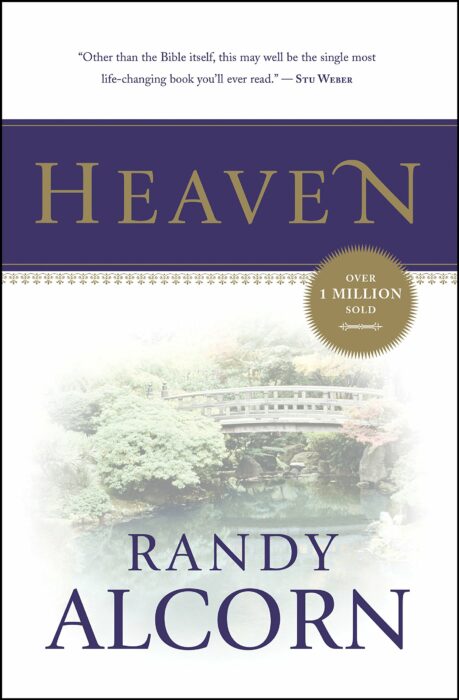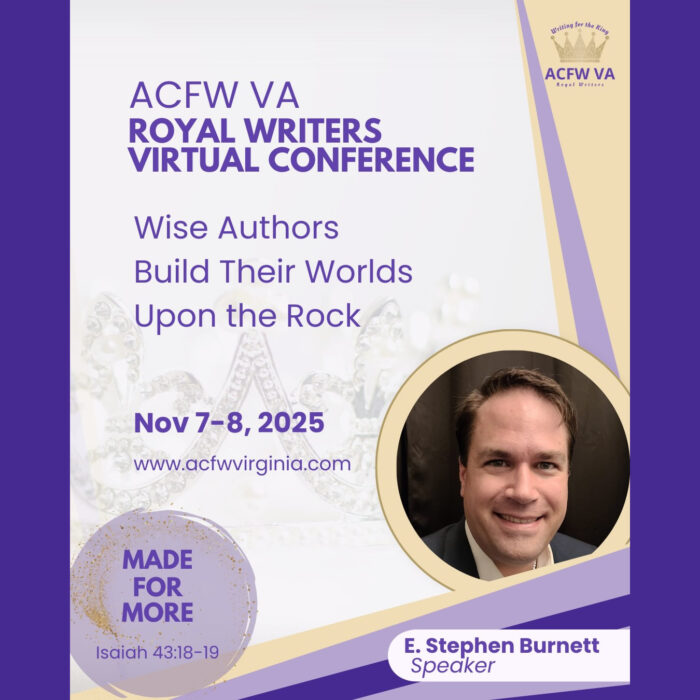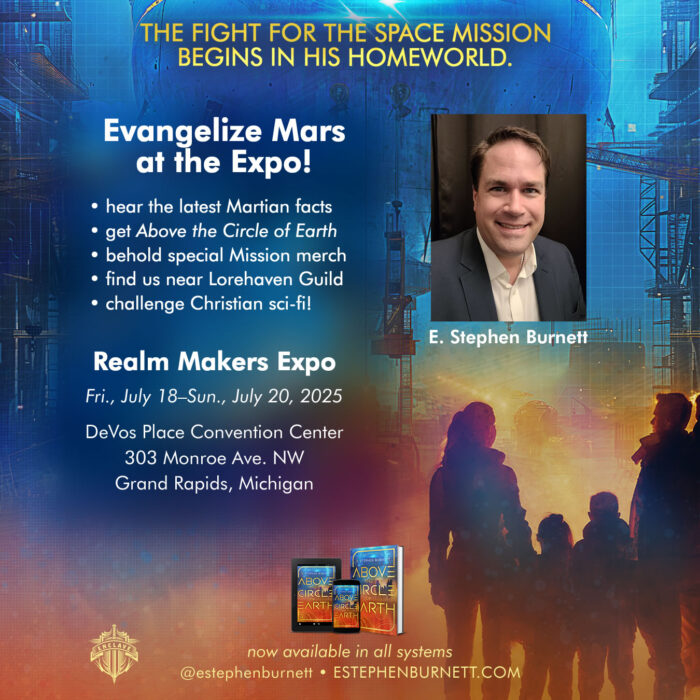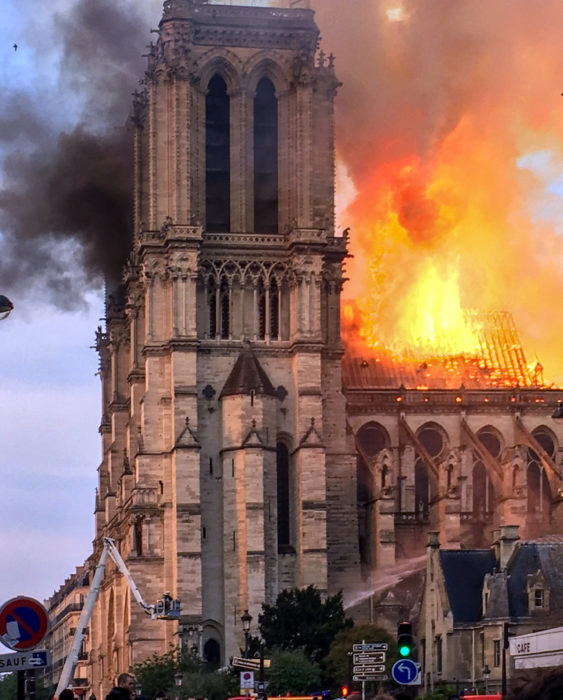In That Land No Good Thing Is Destroyed
Today, Paris’s famed Notre Dame cathedral is all but gone.
Starting this morning, news spread like a fire itself, about the blaze that had swallowed the 800-year-old landmark.
As of this writing, Paris’s firefighters had said they’d at least preserved the building’s main structure. Paris’s mayor also promised the city would rebuild the rest of it.
While videos live-streamed and articles updated, several of my friends remarked how they had always wanted to visit the cathedral.
Others recalled a special trip when they had seen Notre Dame. Yet they regretted they’d never see it again, or bring their children there.
I’ve never seen the cathedral myself. But I can empathize with that sense of loss (even if not on such a human-historical scale).
That strange sense of distant yet personal loss
Last summer, my wife and I learned the fate of our old vacation cabin.
We’d vacationed there as newlyweds in spring 2009. Three years later, we returned for a more traditional vacation.
Then, last year, we had scheduled a return to that area. It’s Gatlinburg, Tennessee, a nature and popular-cultural vacation spot near Great Smoky Mountains National Park. I had tried to reserve the same cabin, but it had vanished from the internet. I called the company but heard no news, other than the very true fact that owners can pull their cabins off the rental market whenever they like. So I reserved another building, which I figured would be just as decent as the first cabin had been.1
When we arrived, we began to see the signs of the November 2016 disaster. A fire (started by vandals) had scorched the forest surrounding this tourist town. Gatlinburg itself had only barely escaped destruction.
Following directions in our memory, we finally found the site of our old cabin.

Yes, it was gone. Only stone rubble was left. Trees surrounding the cabin site still bore black scorch marks.
We felt a strange sense of loss, and also curiosity that we hadn’t even thought that “our” cabin could have been destroyed. All the cliches come true. You just don’t assume that such a disaster could happen to any place you know.
Will Notre Dame be restored?
Whether or not we’ve seen the French cathedral, maybe its presumed inevitable existence becomes as fixed in our minds as, say, the Grand Canyon. Or the moon. Or like history itself.
It’s been there long enough. Why should it ever go away?
But the existence of centuries-old historical buildings are full of interruptions. So-and-so destroyed this part during this war. This portion was rebuilt in 18-something after the earthquake. And, of course, the structure had to be restored after the terrible fire of (year).
Now for Notre Dame, that latest year is 2019.
And yet, even as I grieve the threat to Notre Dame’s priceless artwork and Gothic architecture, and the attack on history itself, I’m not sure I can agree with fears such as, “Now I’ll never get to see the cathedral.”
I think the Christian can safely add, “… In this life.” But even if people were never to rebuild Notre Dame, why presume it is gone forever?
Parisian historians might do their best to show us, in the future, what the cathedral once looked like. But only the universe’s Architect has power truly to restore the building, and anything else, right down to the exact, perfectly placed, even original molecule of wood or stone.
He can do it, but will he?
‘The glory and the honor of the nations’
Scripture promises that, for Christ’s people, eternity will be a physical, tangible planet. It will be this very Earth, renewed and restored, filled with the knowledge of the Lord as the waters cover the sea.2
The Bible doesn’t mention only one city in this New Earth (i.e., New Jerusalem). Revelation’s prophecies also promise:
And I saw no temple in the city, for its temple is the Lord God the Almighty and the Lamb. And the city has no need of sun or moon to shine on it, for the glory of God gives it light, and its lamp is the Lamb. By its light will the nations walk, and the kings of the earth will bring their glory into it, and its gates will never be shut by day—and there will be no night there. They will bring into it the glory and the honor of the nations.3
New Jerusalem itself, New Earth’s capital, has no need for a temple. That’s because the Church, Christ’s body, has inherited the “temple” role. But what about famous churches in other cities? Places like Notre Dame’s great cathedral (regardless of whatever false teachings or sins have been associated with it before) certainly qualify as “the glory and the honor of the nations.” And there it is right in Scripture: a direct promise that “the kings of the earth . . . will bring into [the city] the glory and the honor of the nations.”
Kings will come from outside the city, from their nations, and bring into the city their national treasures.
 As Heaven author Randy Alcorn remarks:
As Heaven author Randy Alcorn remarks:
Though John doesn’t elaborate in Revelation, Isaiah is specific about what will be brought to the Holy City. He mentions the cultural products of once-pagan nations: the ships of Tarshish and the trees of Lebanon and the camels of Ephah and the gold and incense of Sheba, which will be brought in by its people “proclaiming the praise of the Lord” (Isaiah 60:6). Treasures that were once linked to idolatry and rebellion will be gathered into the city and put to God-glorifying use. Both Isaiah and Revelation indicate that the products of human culture will play an important role on the New Earth.4
Very possibly, this could include the future Christ-worshiping kings of France, and/or the future Christ-worshiping rulers of France. They will bring into Christ’s new earth the glory and the honor of France.
So that’s why, even as Paris and the world mourns the loss of Notre Dame, I take some encouragement in this truth.
‘No good thing is ever destroyed’
Finally, lest all this seem too theological, fantasy fans will recall how C. S. Lewis imaginatively reflected this truth at the end of The Last Battle. In these concluding moments for The Chronicles of Narnia, our heroes have been drawn into Aslan’s country. This land unites not only the true and eternal Narnia, but also several other true and eternal places:
[Lucy] looked harder and saw that it was not a cloud at all but a real land. And when she had fixed her eyes on one particular spot of it, she at once cried out, “Peter! Edmund! Come and look! Come quickly.” And they came and looked, for their eyes had also become like hers.
“Why!” exclaimed Peter. “It’s England. And that’s the house itself—Professor Kirk’s old home in the country where all our adventures began.”
“I thought that house had been destroyed,” said Edmund.
“So it was,” said the Faun. “But you are now looking at the England within England, the real England just as this is the real Narnia. And in that inner England no good thing is destroyed.”5
I live in this hope: that Christ will return and renew all things. And in that land no good thing is destroyed.
Maranatha.
- Narrator: But in fact, the new cabin was not as decent as the first cabin had been. But that’s another story for another time. ↩
- Habakkuk 2:14 (cf. Isaiah 11:9). For more biblical references about the physicality of the future New Earth, as opposed to an ethereal or “spiritoid” heaven, see Isaiah 60, 65–66; Romans 8; and Revelation 21:1–5. ↩
- Revelation 21:22–26 (emphases added). ↩
- Randy Alcorn, “Randy’s Response to a Former Professor’s Critique of Heaven,” Aug. 31, 2005, EPM.org. ↩
- C. S. Lewis, The Last Battle, page 208. ↩













Well stated, well versed. As in the book of J. Eldredge, ‘All Things New,’ he would heartily concur with this. Love the reference to good ol’ Lewis. Still to come is the world of ‘Barnarus.’ Stay tuned.
I thought this very same thing! I believe that it might be in the new earth also!